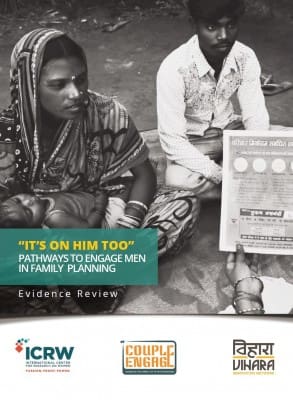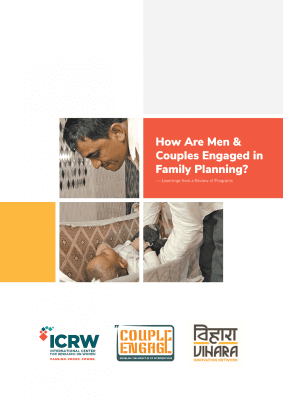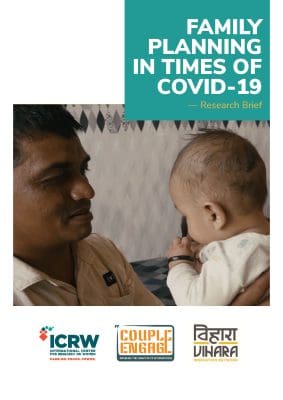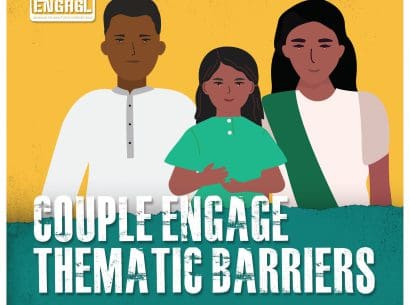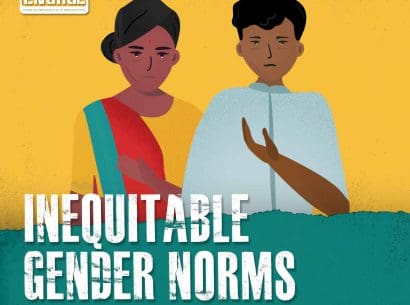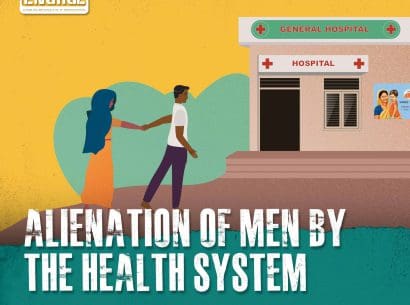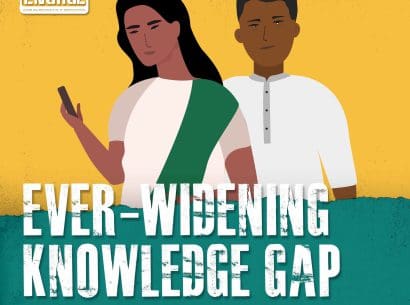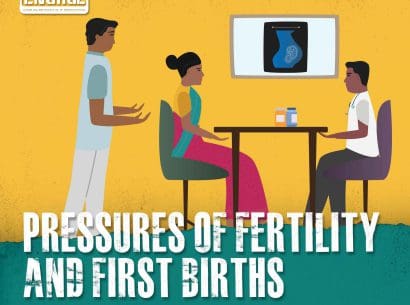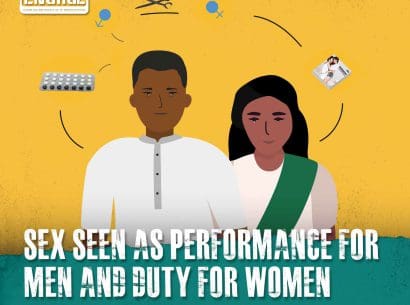
Couple Engage: Doubling the Impact of Family Planning Interventions
2018 - 2020
the Bill & Melinda Gates Foundation
India
Vihara Innovation Network
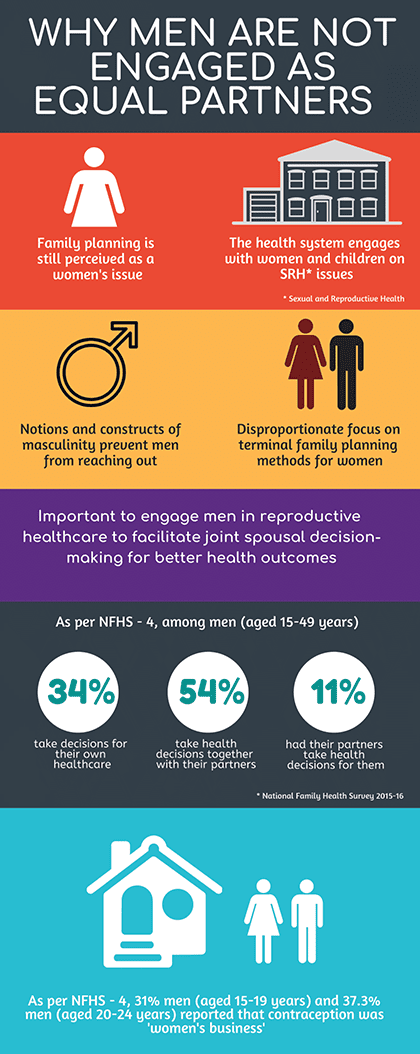 Family planning discourse in India has always been considered a women’s domain, with men at the margins. There is an urgent need to not only reduce unwanted pregnancies and the unmet need for modern contraception, but also to constructively engage men and couples—encouraging men to be supportive partners in addressing both women’s and their own reproductive needs.
Family planning discourse in India has always been considered a women’s domain, with men at the margins. There is an urgent need to not only reduce unwanted pregnancies and the unmet need for modern contraception, but also to constructively engage men and couples—encouraging men to be supportive partners in addressing both women’s and their own reproductive needs.
The International Center for Research on Women (ICRW), in partnership with Vihara Innovation Network and with financial support from the Bill & Melinda Gates Foundation, undertook a project—Couple Engage: Doubling the Impact of Family Planning Interventions—to develop gender-equitable approaches to engaging men and couples in family planning. This two-year project (2018-2020) was based in Uttar Pradesh and Bihar, India.
What did we set out to do?
The Couple Engage project seeks to identify and explore gender-equitable approaches to enabling and empowering couples to make better reproductive choices. It positions family planning as a sexual and reproductive right for both young men and couples to achieve their social and individual aspirations.
Using evidence-driven approaches, including rigorous qualitative research and human-centered design (HCD), this research project aims to develop gender-equitable prototypes to engage young and low-parity (woman with no or one child) men and couples in family planning. With a focus on modern spacing methods, the study also seeks to understand the motivations and challenges for men and couples to jointly make family planning decisions and use modern methods for efficacious spacing.
This research is informed by ICRW’s earlier data on men’s attitude toward gender equality and masculinity, which highlights that norms around masculinity act as deterrents to gender-transformative behavior among men on account of son preference, male-controlled contraceptive decisions, and women’s limited agency on such matters. Thus, a crucial aspect of this project includes efforts to reframe masculine behavior and negotiate with gender norms.
Research Questions:
- What are the motivations and barriers for young men to participate in gender-equitable family planning decision-making and contraceptive uptake?
- How does the interplay of gender norms influence couple dynamic and their family planning choices?
- What is the evidence that discusses the characteristics and processes of identifying young men and couples who support family planning and contraceptive uptake?
What Methods did we use?
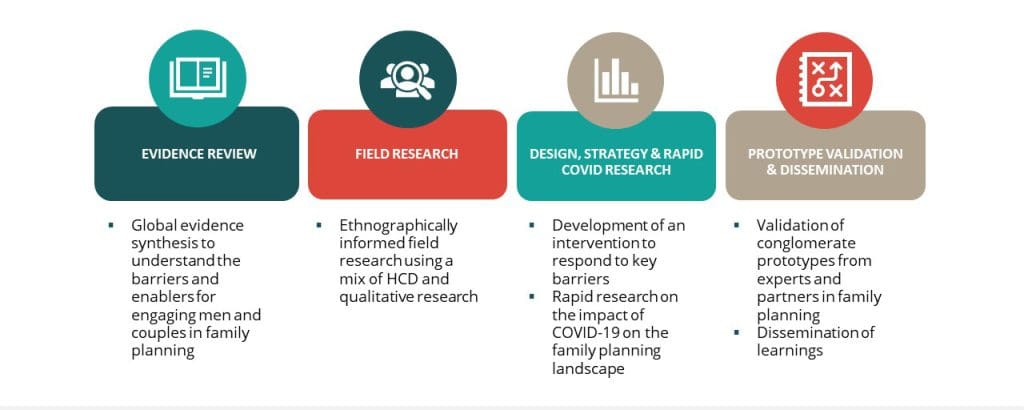
Our Reports and Conclusions
Engaging men and couples in family planning requires us to address key barriers that prevail in the ecosystem and that are spread across health systems, communities and couples themselves. The study finds that harmful gender norms are pervasive in these structures and individual lives. Provisioning solutions to respond to the barriers requires interventions at all levels of the ecosystem.
The research lays out intervention directions to nudge men and couples toward gender-equitable behavior. It highlights prototypes that are gender transformative, contextually sensitive and couple empowering—thus enabling couples to seek family planning to achieve better reproductive outcomes aligned with their life choices. It also makes recommendations for future research and practice on family planning.
In the second phase, we conducted primary research in Uttar Pradesh and Bihar through an HCD-driven ethnographic field enquiry. The key areas of enquiry were explored through a mix of participatory research tools and methods including in-depth interviews, focus group discussions and key informant interviews.
Together, data from the evidence review and immersion visit highlights the behavioral motivations and barriers for men and couples in uptake of modern contraceptives. These were then mapped across the ecosystem and clustered into six thematic barriers, which inhibit couples from making equitable and informed contraceptive choices:
Related Content
Project Team Members:
- Pranita Achyut (project director)
- Aishwarya Sahay
- Kuhika Seth
- Sharmishtha Nanda
- Sneha Sharma

